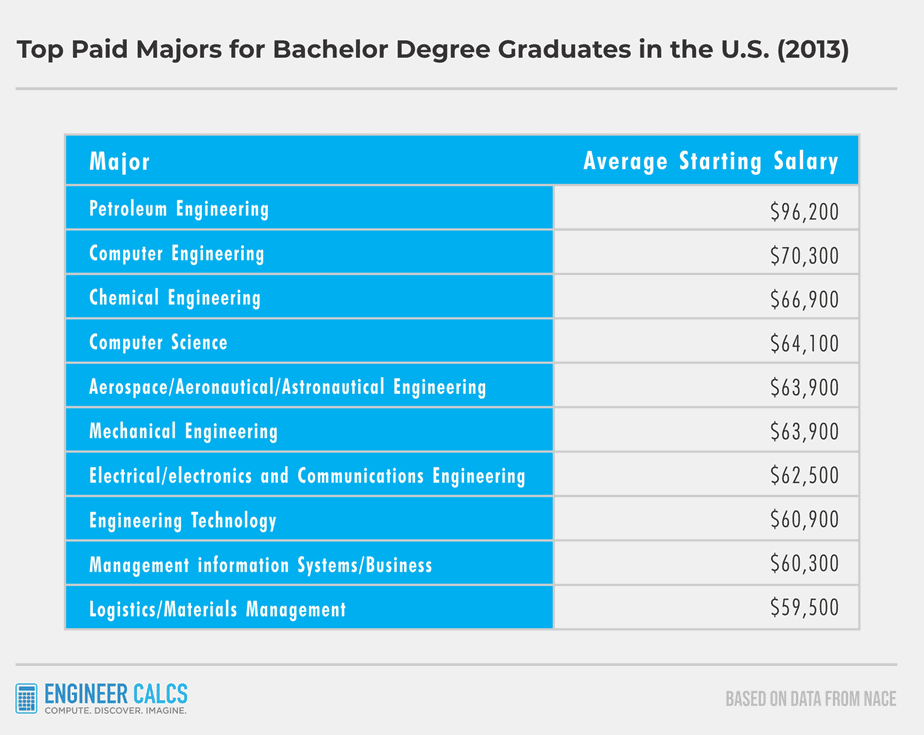Is engineering worth it? If you enter the profession for the right reasons, it’s well worth it. It’s interesting work without a pay ceiling.
To better explain, I’ll cover the following topics:
- Satisfy your childhood curiosity and sense of adventure
- Tackle engaging technical work
- Dive into stimulating challenges
- Enjoy fantastic pay
- Work with intriguing and intelligent colleagues and clients
- Use it as a platform for personal growth
Now, I know some engineers may not agree with me, but in the end, you reap what you sow. If your engineering job isn’t hitting these six points, don’t settle—seek a new opportunity, create one yourself, or level up to attract better prospects.
#1 Satisfy your childhood curiosity and sense of adventure

For all the nerds at heart, engineering can be the ultimate adventure. You’ll satisfy that childhood curiosity by tackling mind-blowing projects and diving deep into topics you’ve always dreamt about.
When you’re passionate about a subject, it needs constant nourishment. Starve it, and you’ll become restless, your motivation plummeting. You’ll feel like something’s missing, leaving you with a sense of emptiness.
But beware—if you pursue engineering for the wrong reasons, like pleasing your parents, chasing prestige, seeking wealth, or being swayed by Hollywood’s portrayal of engineers, you won’t find that itch to scratch. In time, you’ll become miserable and perhaps join the ranks of Reddit and YouTube naysayers claiming engineering sucks.
And remember, even the most fascinating engineering job will have its lows.
#2 Tackle engaging technical work
Sure, some engineering jobs can be mind-numbingly dull—like shuffling papers or counting screws all day. I know it’s hard to believe, but I actually know an engineer whose entire focus is on screws in designs, and let’s just say he’s not thrilled about his day-to-day work.
But with a bit of motivation, you can snag an interesting job or climb the corporate ladder until you’ve found that perfect gig. After I graduated, I started with a lot of basic engineering tasks. It wasn’t until a few years in that I finally dived into real design work. And when I did, I was hooked! I got to work on high-budget engineering projects like the ones I used to watch with my dad on the Discovery Channel.
You see, there’s a world of difference between watching a mega engineering project unfold and actually being part of the nitty-gritty decision-making process. And let me tell you, I loved every minute of it!
#3 Dive into stimulating challenges

For some folks, the thrill of tackling new challenges is like a drug. It’s that same irresistible urge that drives people to scale Mount Everest or shoot for the moon.
Now, engineering may not physically push you like summiting Everest, but it can stretch your mind to the max if you let it.
The beauty of engineering is that there’s a challenge for every taste—whether it’s designing nifty little widgets or working on groundbreaking rocket tech. Around every corner, fresh problems are just itching for engineering solutions, and that’s what makes the field so fantastic.
There’s always room to make things faster, stronger, more efficient, and more affordable. You’ll never run out of mental stimulation or opportunities to learn something awesome.
#4 Enjoy fantastic pay
Some folks argue that engineers are underpaid, hitting a pay ceiling early in their careers. They say that after 10 years, you might only see a 3% raise every couple of years.
But let’s be real—most of the time, it’s the engineer’s fault. If you stop growing and leveling up, you’ll never reach your full income potential. You’ll end up an average engineer with an average salary.
It’s like the benchwarmer in the NBA—they earn the minimum salary, while the stars rake in the big bucks. Sure, some athletes and engineers have a natural edge, but even the last guy on the bench can rise through the ranks with relentless training.
Take a look at this table of average starting engineering salaries from 2013. You’ll see that the pay for a 4-year degree is pretty decent.

I know, I know—some people might think anything below six figures is chump change, even for entry-level gigs. But let’s put things in perspective: the average U.S. salary for all occupations in May 2020 was $56,310. And that’s not just for newbies; it includes seasoned pros too!
Now, if that didn’t give you a reality check, let me crank it up a notch. I know a bunch of engineers who make well over $500k annually in technical roles. Of course, these are typically 10x engineers.
The point is, if you’re hungry for success, there’s no income ceiling in engineering. Drown out the naysayers and focus on growing yourself and leveling up nonstop.
#5 Work with intriguing and intelligent colleagues and clients
Jim Rohn famously said,
“You’re the average of the five people you spend the most time with.”
There’s definitely some truth to that. As an engineer, you’re often surrounded by some seriously brilliant minds—well, most of the time, at least.
And let’s be real: there aren’t many places where you can mingle with large groups of like-minded folks, sometimes even world experts, unless you’ve got deep pockets and a killer project to bring people together. Look at Elon Musk and SpaceX; he assembled the brightest aerospace minds in the industry.
Speaking of SpaceX, imagine being surrounded by some of the sharpest engineering minds, pushing rocket tech to its limits. Ideas and solutions practically seep from the walls, providing endless opportunities for learning and mental stimulation. I find this environment incredibly motivating and inspiring, keeping me on my toes and fueling my insatiable thirst for knowledge.
#6 Embrace it as a launchpad for personal growth
Picture a job where your brain is barely challenged. I’m not throwing shade at burger flipping, but let’s be real—you don’t need a ton of brainpower to flip those patties.
Now, engineering roles are a whole other beast (well, most of them). They bombard you with high-level problem-solving, pushing you to grow by tackling constant challenges.
Sure, there are countless ways to challenge yourself beyond the world of engineering. But when your designs have millions of dollars and human lives on the line, the stakes are next-level.
As a lead engineer, you’ll level up your:
- Technical skills
- Business know-how
- Creativity
- Problem-solving prowess
- Grit
- Adaptability
- Curiosity
You can then take these souped-up skills and apply them to any area of life. Whatever new path you embark on will feel like a walk in the park, thanks to your newfound confidence.
No wonder so many company CEOs have engineering backgrounds. Check out this impressive list of high-flyers:
- Jeff Bezos, founder of Amazon – BS Electrical Engineering and Computer Science
- Tim Cook, CEO of Apple – BS Industrial Engineering
- Satya Nadella, CEO of Microsoft – BS Electrical Engineering
- Sundar Pichai, CEO of Google – BS Metallurgical Engineering
- Steve Wozniak, Co-founder of Apple – BS Electrical Engineering and Computer Science
- Mary Barra, Chairman and CEO of General Motors – BS Electrical Engineering
“Is engineering worth it?” wrap up
Engineering is a total slam dunk if you’re in it for the right reasons. Not only can you make your childhood dreams come true, but you’ll also help push humanity forward.
What’s more, your engineering skills will be your secret weapon in pretty much any other industry. You’ll score both entrepreneurial and technical skills—a killer combo that’s hard to find elsewhere.
Is engineering worth it to you? What sets it apart from other careers?

I found this article very insightful and motivating. It has made me more confident in my decision to pursue engineering as a career.